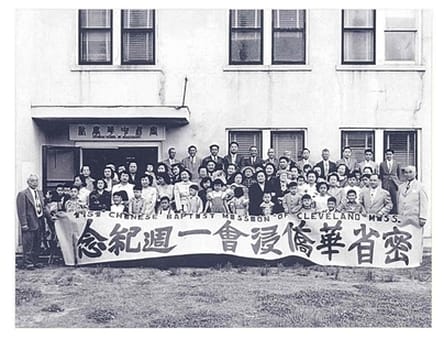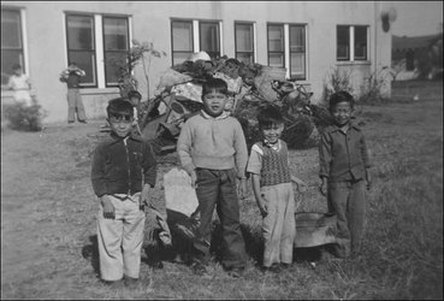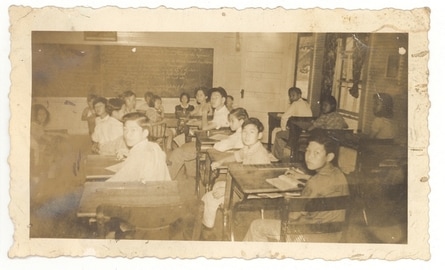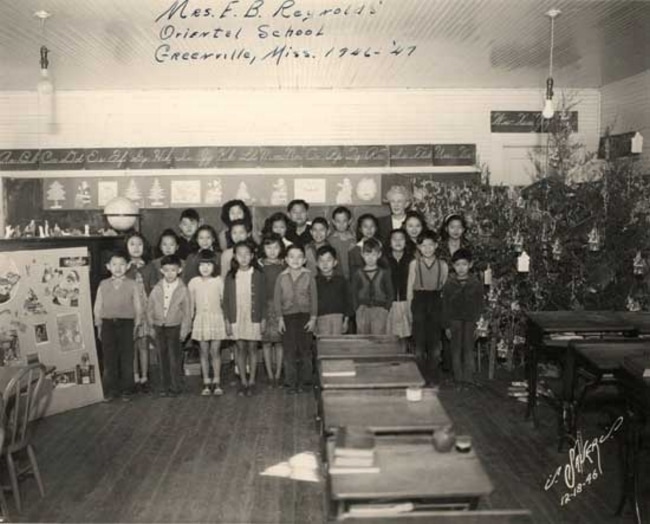Image Above: "The one-room Oriental School near the levee in Greenville, MS. Courtesy of Ted Shepherd." From Chopsticks in the Land of Cotton, p. 115.
Audio Clip Above: Emily Jones:"Your case, there were two that were enrolled in the public school there. And so, that's 1924. That's before the Chinese mission schools ever started. It was because of your case, that the families had to form Mission Schools, send their children back to China for an education, or move to another community...But your case really did change the landscape for parents and the children. It really made the debate in the question of, 'Where can we go? What are the boundaries?' Really, kind of, more "black and white"... The case that you're studying is actually something that not a lot of people know about or talk about. Umm, so I hope that you bring a whole lot more attention to it..."-Personal Interview with Emily Jones, Archivist at Delta State University, Cleveland, MS. August 18, 2016.
Decades after Lum v. Rice, many Chinese continued to live and work in the Delta, among blacks and whites, but sent their children to Chinese-only schools, rather than send them to the county's segregated "colored" schools. Many went on to attend college, too.






